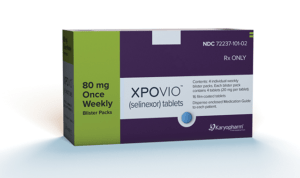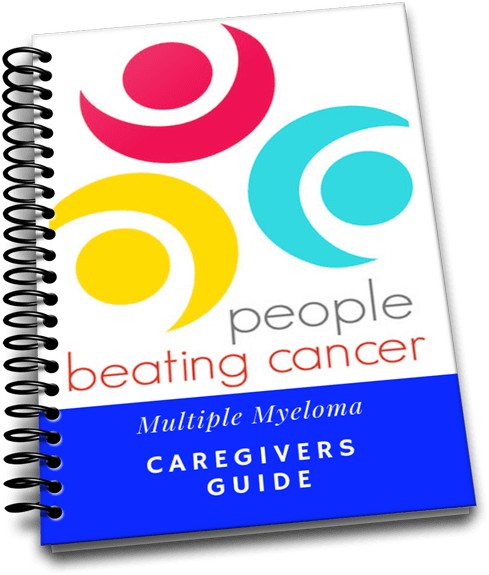“Selinexor (Xpovio) approval & pricing highlights what’s wrong with our system (FDA),” Mayo MM specialist Dr. Vincent Rajkumar wrote…”
I expect my thinking and comments about the Food and Drug Administration (FDA) and multiple myeloma (MM) drugs to be controversial. After all, my MM experience was…mixed.
I have been following Dr. Vincent Rajkumar for years. I consider Dr. Rajkumar to be experienced and knowledgable when it comes to the world of FDA and chemotherapy regimens.

My point is that when a MM specialist like Dr. Rajkumar makes critical comments about an FDA approved MM drug, patients and survivors should sit up and take notice.
For the record, I expect for-profit drug companies to charge what the market will bear. If a MM surivor has relaped five times and has no where to turn, he/she might very well push their oncologist to try Selinexor (Xpovia). It is the FDA’s job to police any and all sorts of abuses on the part of drug companies involving MM patients and survivors
MM patients can make poor decisions when their life is on the line. I know. I’ve been there. This is why I the FDA to needs to think like Dr. Rajkumar.
Dr. Kumar’s comments in the article below clearly explain what’s wrong with the FDA and why multiple myeloma patients and survivors must learn about and consider evidence-based therapies beyond what conventional oncology offers.
To learn more about evidence-based, non-conventional MM therapies, scroll down the page, post a question or comment and I will reply to you ASAP.
Thank you,
David Emerson
- MM Survivor
- MM Cancer Coach
- Director PeopleBeatingCancer
Recommended Reading:
“In a series of tweets, a myeloma expert called the FDA accelerated approval of Karyopharm’s Xpovio “baffling” and “incorrect” and the drug’s $22,000 monthly price tag “outrageous…”
Last week, the Food and Drug Administration granted accelerated approval to Newton, Massachusetts-based Karyopharm Therapeutics’ Xpovio (selinexor) for so-called “penta-refractory” patients, meaning those who have failed on five therapies across three key drug classes. The approval was based on response rate data from the Phase IIb STORM study, as well as data from the Phase III BOSTON study that have not been disclosed publicly…
Selinexor (Xpovio) approval & pricing highlights what’s wrong with our system,” Mayo Clinic multiple myeloma specialist Dr. Vincent Rajkumar wrote in a series of tweets that several prominent myeloma experts liked or retweeted…
The approval was based on response rate data from the Phase IIb STORM study, as well as data from the Phase III BOSTON study that have not been disclosed publicly…
There’s no doubt that the penta-refractory patients represent a significant unmet need. Xpovio’s label specifies that they must have failed on two proteasome inhibitors, two immunomodulators and one CD38-targeting monoclonal antibody.
- Velcade (bortezomib) and Ninlaro (ixazomib), Kyprolis (carfilzomib) are three marketed proteasome inhibitors.
- Thalomid (thalidomide), Revlimid (lenalidomide) and Pomalyst (pomalidomide) are immunomodulators.
- Darzalex (daratumumab) is the only approved anti-CD38 antibody.
But despite that unmet need, Rajkumar raised a number of questions about the data that led to the approval. He wrote that
- the 25.3 percent response rate for Xpovio and the steroid dexamethasone observed in STORM would have been lower with Xpovio as a single agent.
- Moreover, he continued,there were too many side effects;
- the dosing was incorrect;
- the study had no control group;
- and the FDA’s Oncologic Drugs Advisory Committee (ODAC) had voted against the drug.
“An approval in the face of this is baffling,” Rajkumar wrote.
“To trade on hope and say we have to give people something – I don’t think that’s really right,” the member (of the FDA Oncologic Drugs Advisory Committee (ODAC) committee) said, adding that the agency should have waited to approve the drug until the BOSTON data were made public…
The ODAC member also cited the label’s lack of a black-box warning about toxicity as problematic. But while the label should have carried one, it is also incumbent on physicians to discuss toxicities with their patients, the member said.
Some doctors agreed with Rajkumar…
According to the ODAC briefing document, 89.4 percent of patients experienced at least one treatment-related adverse event at Grade 3-4, meaning it was deemed serious or life-threatening. There were also two deaths considered related to treatment…
Steensma called it “ridiculous to charge $22,000 per month for such a marginal drug.” Rajkumar went further. “It’s laughable to think selinexor is worth $22,000. I’d say $2,000 is too high,” he wrote in his tweet, calling the price “outrageous…”
Relapsed/Refractory Multiple Myeloma- Xpovio Increases Overall Survival?
According to the study linked and excerpted below, the clinical trial named BOSTON demonstrates that Xpovio (selinexor) extends that overall survival (length of life) of relapsed/refractory MM survivors.
While I would like to jump for joy for ANY MM therapy shown to increase a MM survivor’s multi-drug resistance (MDR), please see 1-4 my question below- I’m just cautioning MM survivors about a MM therapy that some oncologists (Dr. Rajkumar above) openly criticizes.
- Boston discussed below is a clinical trial…more studies are required…
- Xpovio, Velcade, Dexamethasone is in the testing phase. NOT approved by the FDA.
- Let’s talk time (OS) not percentages…none of this “47% longer!”
- No discussion of side effects from XVd therapy-
“Adding Xpovio (selinexor) to Velcade (bortezomib) and low-dose dexamethasonesignificantly extends survival without signs of disease worsening in people with multiple myeloma who received one to three prior lines of therapy, top-line results from the BOSTON Phase 3 trial show.
The triple combo, given once per week, helped patients live without disease progression for a median of 14 months. That was 4.5 months longer than the period seen in people receiving the standard, twice-weekly Velcade-dexamethasone combo..
BOSTON has met its primary goal, demonstrating that the once-weekly Xpovio combo reduces the risk of disease worsening or death by 30%.
No new safety signs were reported in the triple combo arm, the researchers reported. Additional findings will be presented at upcoming medical meetings.
Karyopharm intends to submit the data to the U.S. Food and Drug Administration(FDA) as part of a supplemental new drug application seeking to expand XPOVIO’s approved use…
“In the study, patients on the [triple-combo] regimen lived 47% longer without their disease worsening, which we believe represents an important improvement in the treatment of patients with relapsed or refractory multiple myeloma,” Shacham said.
The FDA granted Xpovio accelerated approval, in combination with the corticosteroid dexamethasone, for treating people with multiple myeloma who had received at least four prior therapies and failed to respond to treatment.
Given in July 2019, that approval allows Xpovio’s use for people whose disease is resistant to several forms of treatment, including:
These antibodies work by improving host-anti-tumor immunity.
The accelerated approval was based on findings from the multicenter, single-arm, open-label STORM Phase 2b trial (NCT02336815), which showed that a quarter of these heavily treated myeloma patients responded to Xpovio treatment, and that responses lasted a median of 3.8 months.
The researchers note that treatments granted accelerated approval status require a further showing of efficacy in a confirmatory study. That was the main goal of the randomized BOSTON trial (NCT03110562).
BOSTON is assessing if adding Xpovio to treatment with Velcade and low-dose dexamethasone delays disease progression and extends the lives of patients with relapsed or refractory multiple myeloma (RRMM).
It has recruited about 402 participants who had received up to three prior lines of therapy, and randomly assigned them to receive the Xpovio combo, once-weekly, or standard Velcade and low-dose dexamethasone every two weeks…”




